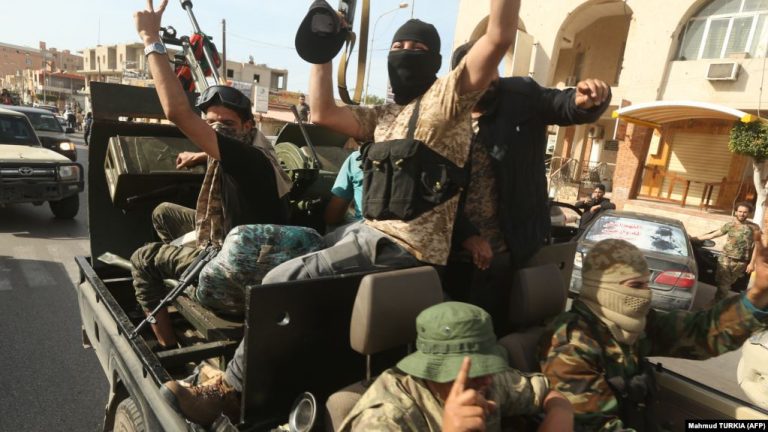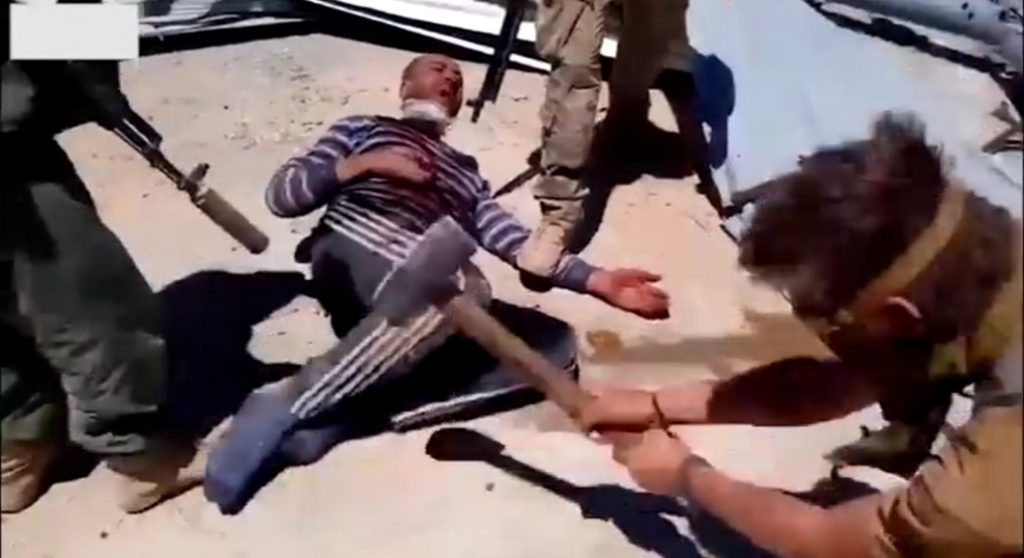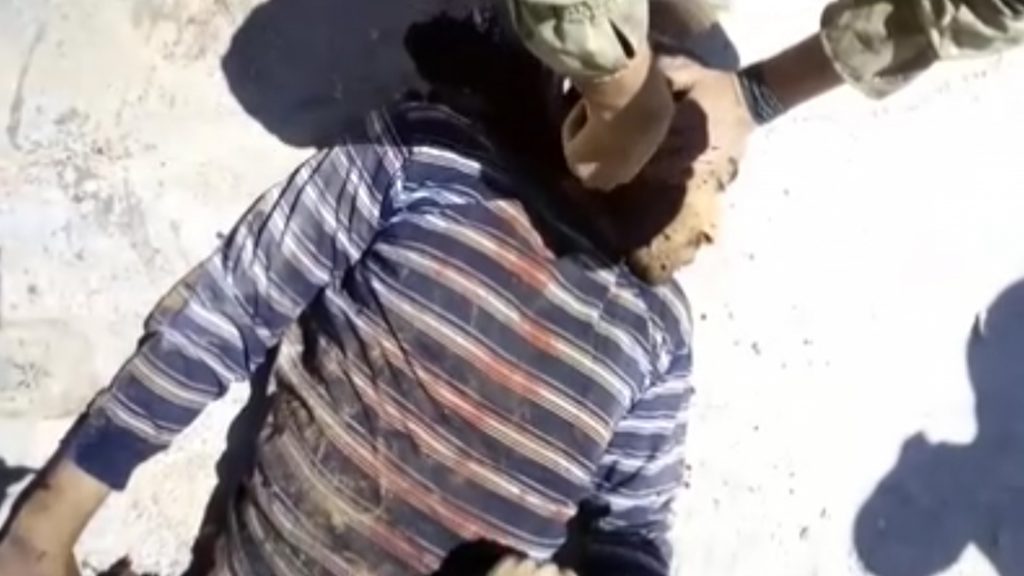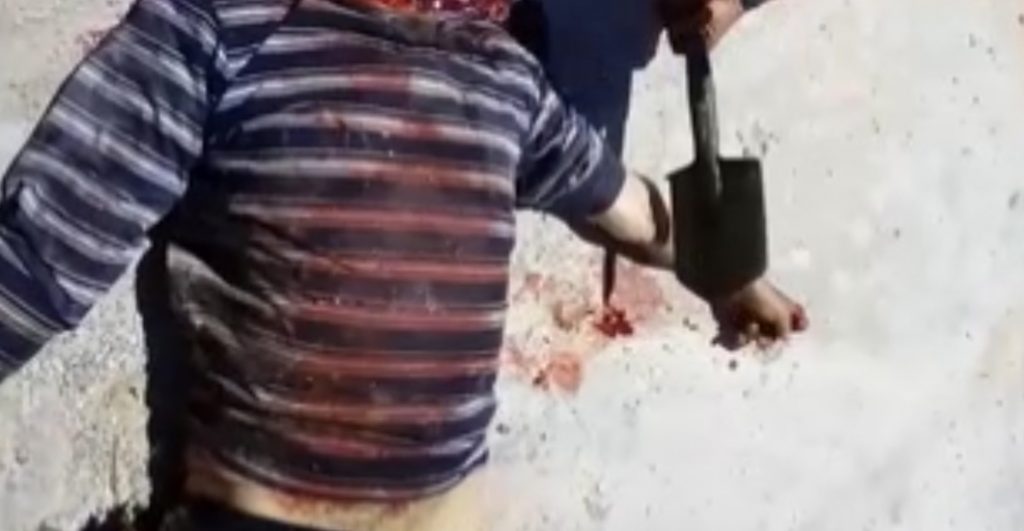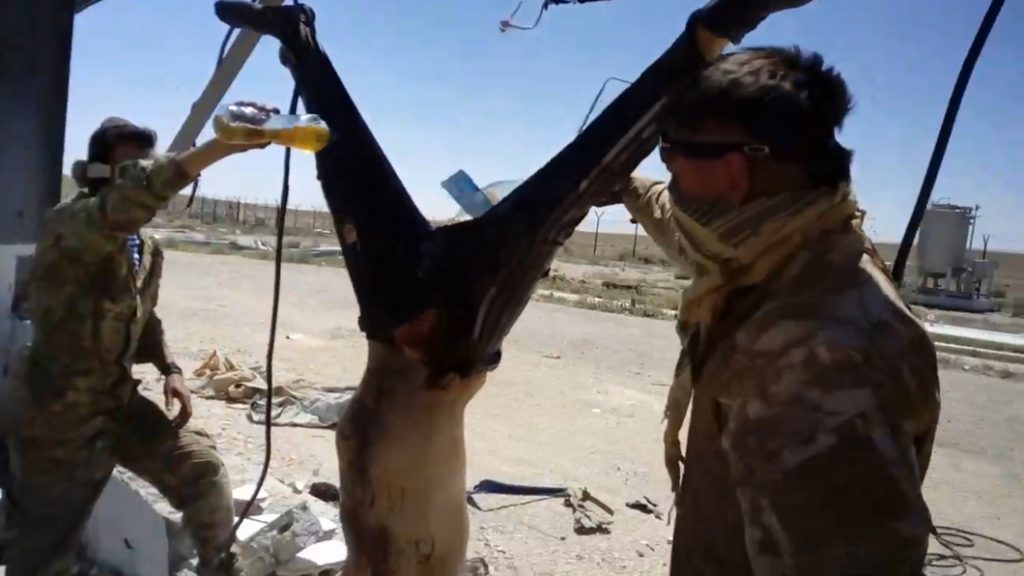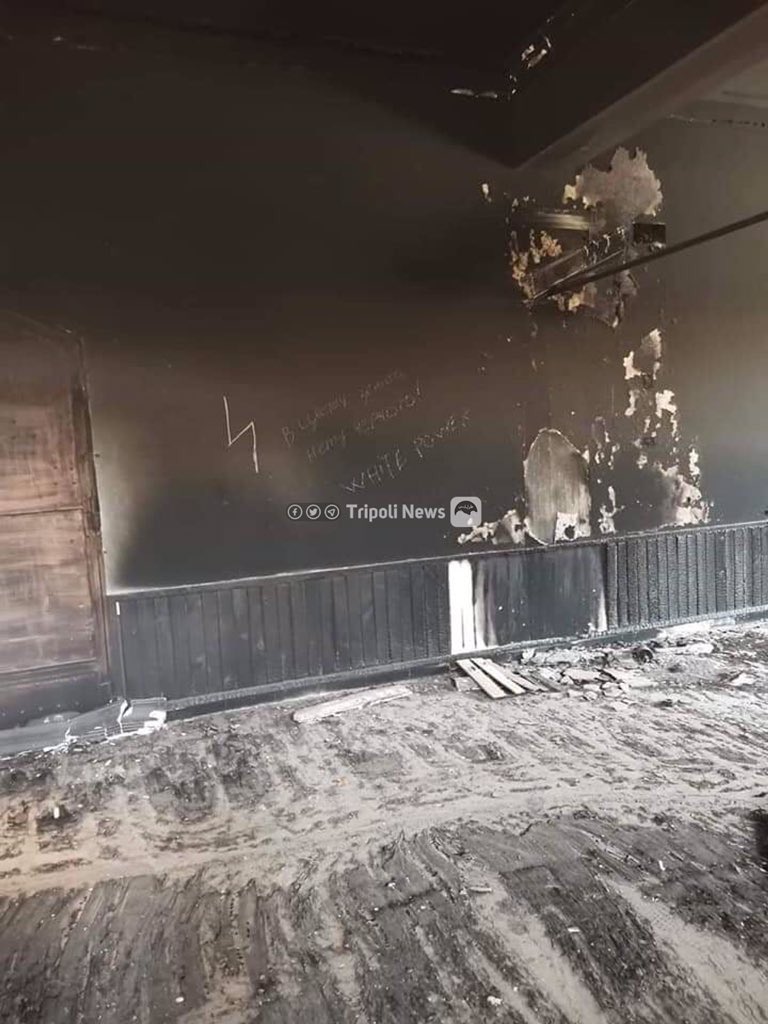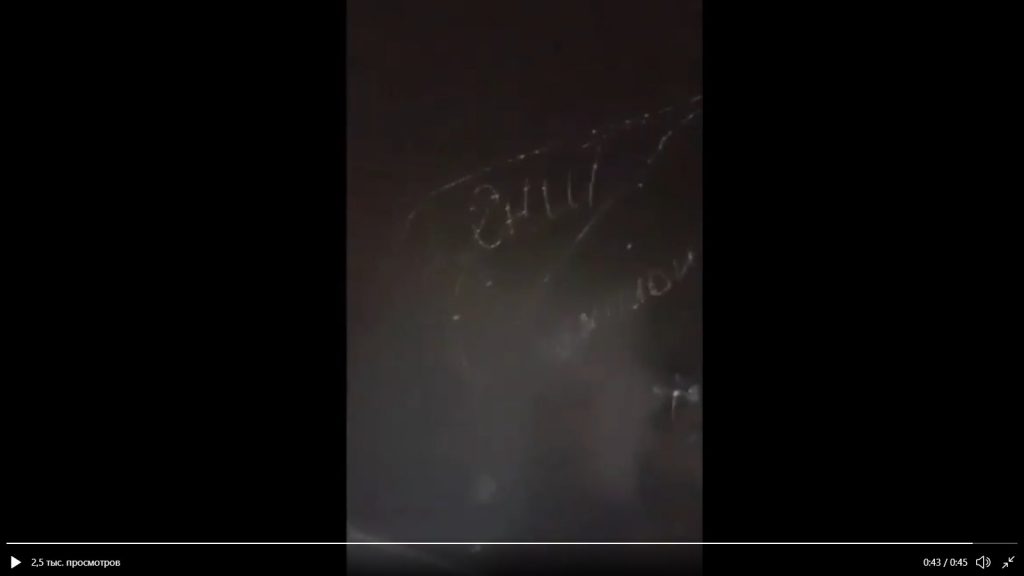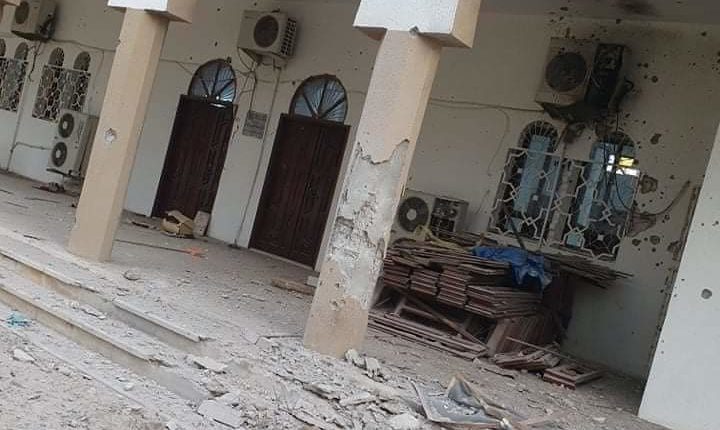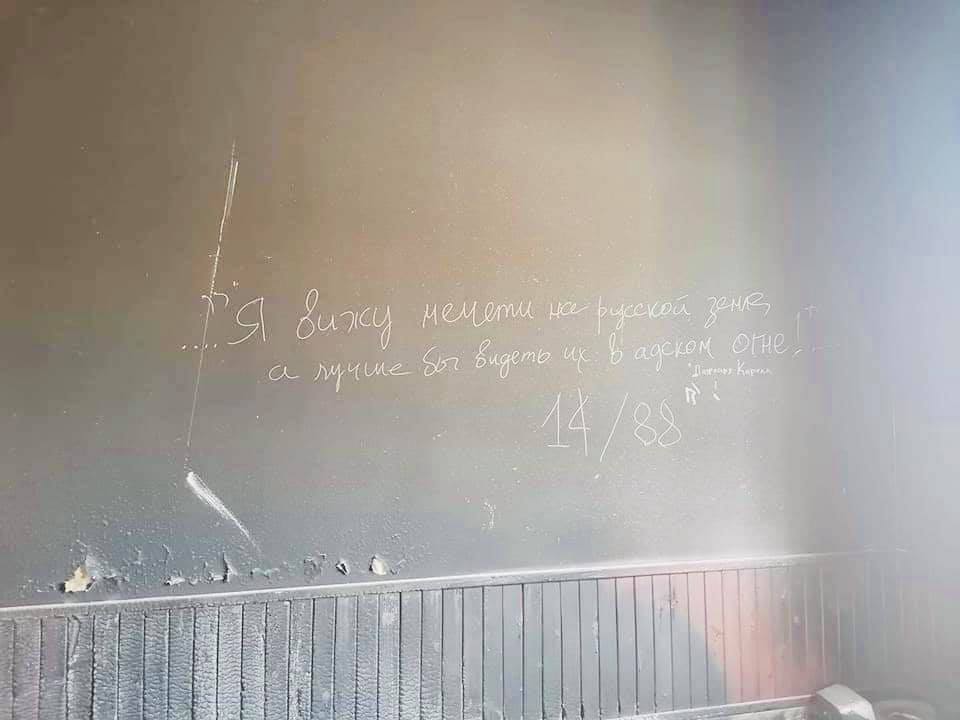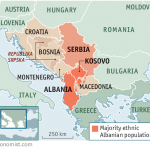The participation of Russian private military companies in foreign operations has been confirmed at least in such countries as Syria, Libya, the Central African Republic, Mozambique, Venezuela, Sudan and Ukraine. Despite the wide geography of PMC-carried out operations, Wagner Group particularly, the existence of private military companies in Russia has not been legally regulated. An analysis of the specifics of the activities of the units in military conflicts proves the special missions they are assigned to carry out and explains the reasons for their activity outside Russia’s legal environment.
Legal problems of private military companies’ activity in Russia
In 2014 deputies from The Spravedlivaya Rossia faction submitted the private military companies draft law to the State Duma for the first time. At that time it was negatively reviewed from relevant parliamentary departments.
In 2016 the draft law was withdrawn from consideration on initiative of its submitters, deputies Nosovko and Mikheev.
At the beginning of 2018, it got about the draft law legalizing PMCs would be submitted to the State Duma for the second time. The draft was authored by The Spravedlivaya Rossia faction leaders, Sergey Mironov and Mikhail Emelyanov. A few days before the public announcement, Russian Foreign Minister Sergei Lavrov proposed protecting the interests of PMCs legislatively. However, the Russian government reviewed the draft law negatively. An analysis of the key establishments mentioned in the draft law texts indicates that the 2014 document protected the interests of the Federal Security Service of Russia, and the 2016 and 2018 acts protected the interests of the Ministry of Defense. The 2018 draft law foresaw that Russian PMCs can protect various facilities and territories, and participate in full-fledged military operations as well. However, the draft law failed because of the inconsistency between the Ministry of Defense and the Federal Security Service. Monitoring Russia’s legislative activity related to the legal regulation of PMCs proves that there are no prospects for the PMCs law to be passed.
Despite the absence of legal boundaries for Russians PMCs’ activity makes social protection and support of such organizations problematic, the related initiatives blocked at the government level shows the lack of interest of the key players of Russia’s security agencies in PMCs’ activity legalized.
The Russian Criminal Code explicitly prohibits creation or participation in armed formations that are not stipulated by a federal law. It also foresees prison sentence for mercenary activities or recruiting, training, funding or supply support of mercenaries. These restrictions are clearly articulated in the Article 208 “Organization of an illegal armed formation” and Article 359 “Mercenary” of the Criminal Code of the Russian Federation. Needless mentioning that the same Criminal Code sets out severe punishment for illegal purchase/sale or smuggling of arms.
PMC activities and Russia’s criminal legislature conflict provides a green light to form such military companies exclusively by law enforcement agencies, and to control mercenaries from these organizations by using the opportunity to bring legal cases against them in event of information leakage very fast.
Despite the illegal status of PMCs in Russia thousands of mercenaries keep fighting in different parts of the globe on a day-to-day basis. Only the Wagner Group is generally estimated to include 3,000 members (one of the estimates gives the number of 6,000 members) and none of them have been convicted.
Reasons for PMCs to be outlawed in Russia
An analysis of foreign operations with Russian PMCs involved indicates that their campaigns are carried out in the interests of two law enforcement agencies, the military intelligence of the Russian Federation and the group combining the Federal Security Service and the Foreign Intelligence agency.
The vast majority of such operations are totally denied by the Russian authorities stating that no Russian military units act in these countries. Thus, the Kremlin has traditionally denied the presence of Russian military in Libya, Ukraine and Venezuela.
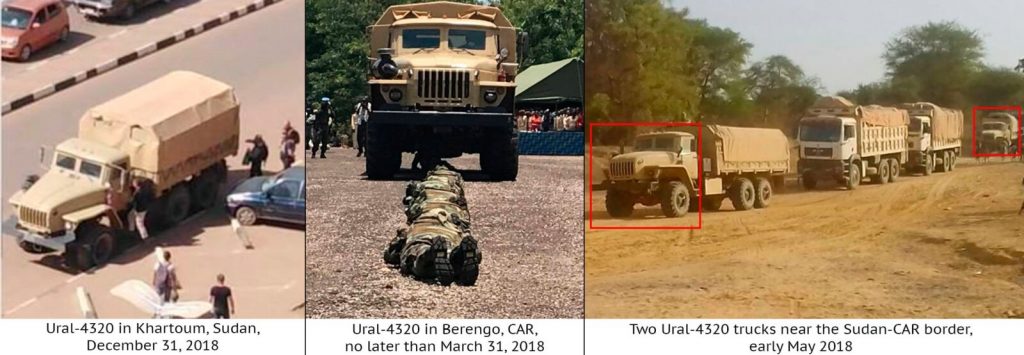
The Russian authorities are interested in maintaining such a status of PMCs since they are actually used for conducting hybrid military operations as an element of military intelligence and Special Operations Forces. The tasks carried out by PMCs violate international law as, for instance, in the case of the annexation of Crimea and military operations in Donbass and Sudan.
In 2018/2019, when Sudan’s government led by Omar Hassan al-Bashir was coming under growing opposition from citizens who took to the streets demanding regime change, the Wagner Group allegedly went to Sudan to help al-Bashir’s forces. Roughly 100 fighters from the outfit deployed to Sudan during that period.
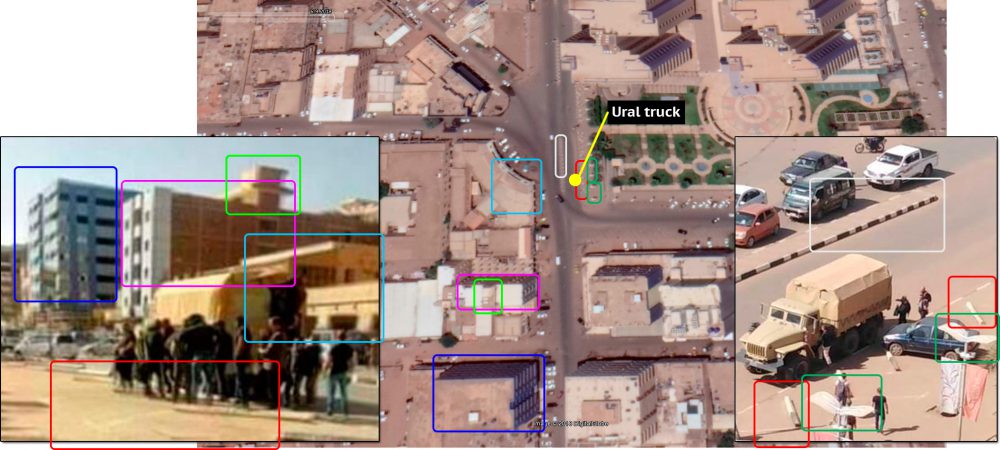
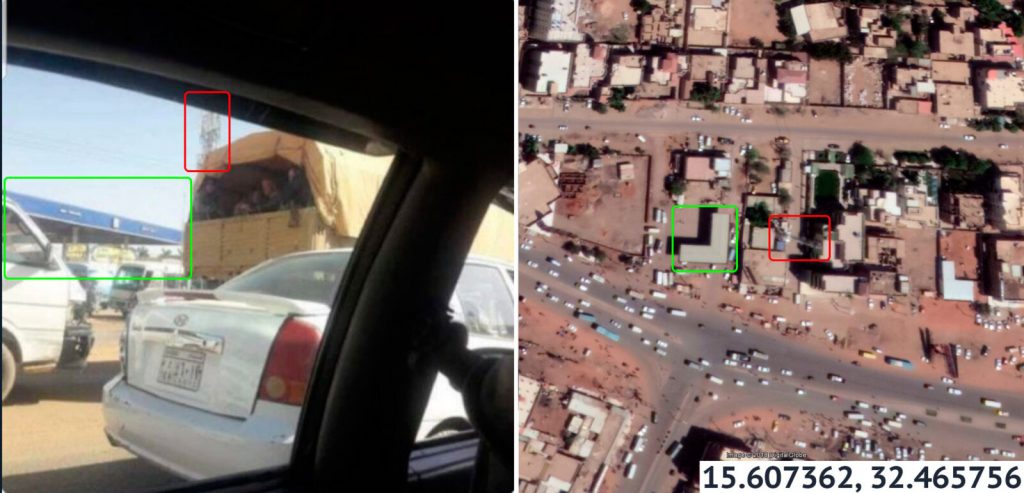
The lack of legal status enables the Kremlin to use such units covertly under the guise of volunteers, mercenaries but not as the Russian regular army units; and to hide the fact that they are directly commanded by Russian leaders.
Mercenaries advantage over regular armies. They give plausible deniability. Using them, a Russian government can sponsor military action abroad while pretending not to.
At the same time, the operation of such units outside of legal environment makes them de jure extraterritorial, and therefore does not put Russia to hazard if they violate international conventions and commit war crimes.
After being legalized, PMCs will become more than contractors, they will be structural units that can be contracted with the government. Thus, they will turn to direct competitors to the Ministry of Defense and claim a share of their budget.
PMCs are cheaper than regular armies. Whereas soldiers receive lifelong contracts and pensions, mercenaries are often paid by the job. They are also better value for money than the heavy, expensive weaponry that contractors governments often import, which is not much use against terrorists.
Colonel Tim Collins, a veteran of Britain’s Iraq campaign who has been running a private military firm in Afghanistan, says that “for the money Britain spends on booze at Christmas” such firms could provide African governments with a continental force (not that they would ask for one).
Nowadays Russia is seen as the leading country egging on mercenaries to help it wield influence. It does so mainly through Wagner, whose founder, Yevgeny Prigozhin (Prigogine), is close to President Vladimir Putin. Prigozhin provides catering services to the Russian Ministry of Defense and other government agencies; he is also considered to be the sponsor of the Wagner PMC.
However, despite these advantages, Russian PMCs’ activity can be considered effective only in protecting infrastructure and providing military assistance. For example, the experience of the Wagner group in Mozambique shows a lack of its mercenaries’ field training skills and low efficiency because of what they lost the contract.
In Syria case the total defeat of the Wagner Group in its attempt to seize the refinery showed PMC’s absolute inefficiency in fighting against the conventional armed forces.
Despite the Kremlin’s denial of Russian PMCs’ involvement in the foreign operations, some facts are so loud to prove Russian law enforcement agencies-originated activities.
Relations with Russian leaders
There are several private military companies in Russia. For example, in July 2018, the Ministry of Defense founded its own PMC ‘Patriot’. It recruits mostly professional military personnel who are still on duty in the Ministry of Defense. ‘Patriot’ members get paid more (from 400,000 to 1 million rubles, i.e $6-16,000) and assign combat missions better than in the Wagner Group. Moreover, ‘business trips’ last no more than a month or two. This organization is an analogue of military intelligence combat groups and has the same functions.
the group is mobilized in places where strategic Russian interests are at stake or in places where President Vladimir Putin wants to expand Russian influence and upgrade Moscow’s international standing. At the same time, the group is allegedly participating in military operations, where if things go awry Russia’s Ministry of Defense can wash its hands from of any responsibility. The group allows Russia to claim that the individuals involved in specific incidents were not acting under any official or government-ordered capacity.
Different sources associate the most famous PMC ‘Wagner’ with the Federal Security Service. Such conclusions are based on the fact that the personnel of the Wagner-based ‘Slavonic Corps’ organization were arrested by the Federal Security Service after the first fights in Syria. The resumption of their activity as PMC ‘Wagner’ is associated with their re-recruitment and cover by the Federal Security Service. However, the intercepted telephone conversation between Dmitry, Wagner’s unit commander, and colonel Oleg Ivannikov, the Main Intelligence Directorate, whom Bellingcat considers involved in transporting air defense missile systems Buk from Russia to Donbass (the missile system that shot down flight MH17) proves PMC Wagner and the Main Intelligence Directorate connections. However, this fact may indicate operational subordination at a particular theater of military operations in a specific period of time and may not prove the PMC’s activity supervised in full.

This conclusion is indirectly confirmed by several cases, in particular, when the Ministry of Defence contributed to eliminating the Wagner fighters in Syria and the latter participated in the wind up of the military intelligence asset in the CAR. Thus, department competition in the struggle for financing and influence on the President of Russia results in carrying out operations that weaken PMCs.
As of Putin he sees PMC competition as a possibility to weaken the Federal Security Service-Foreign Intelligence Service and Ministry of Defense group ad hoc and prevent them from getting strengthened politically.
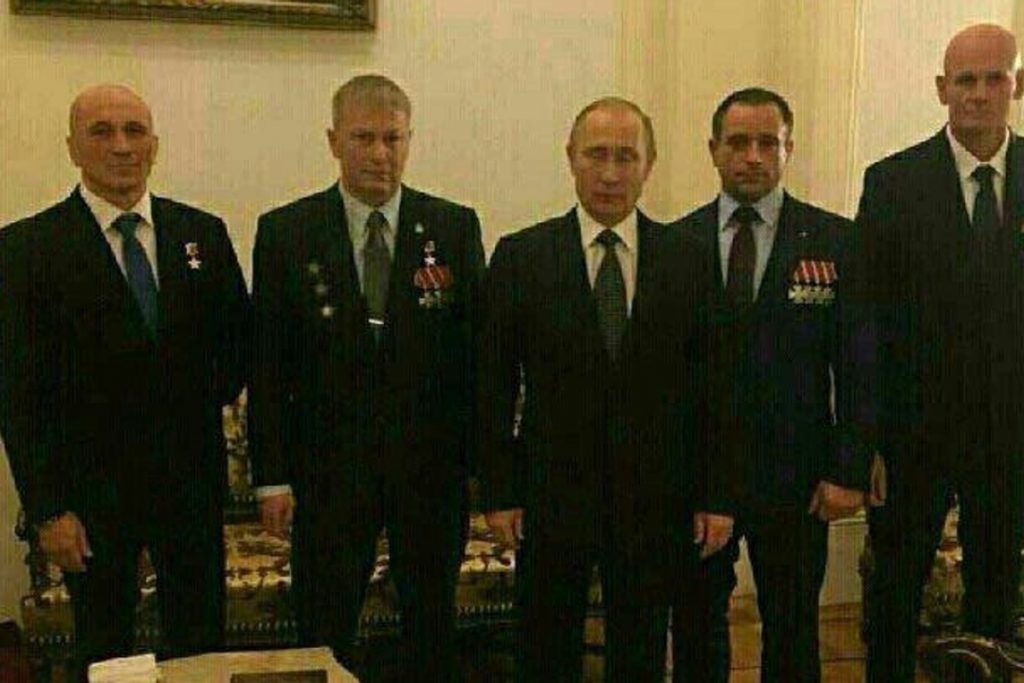
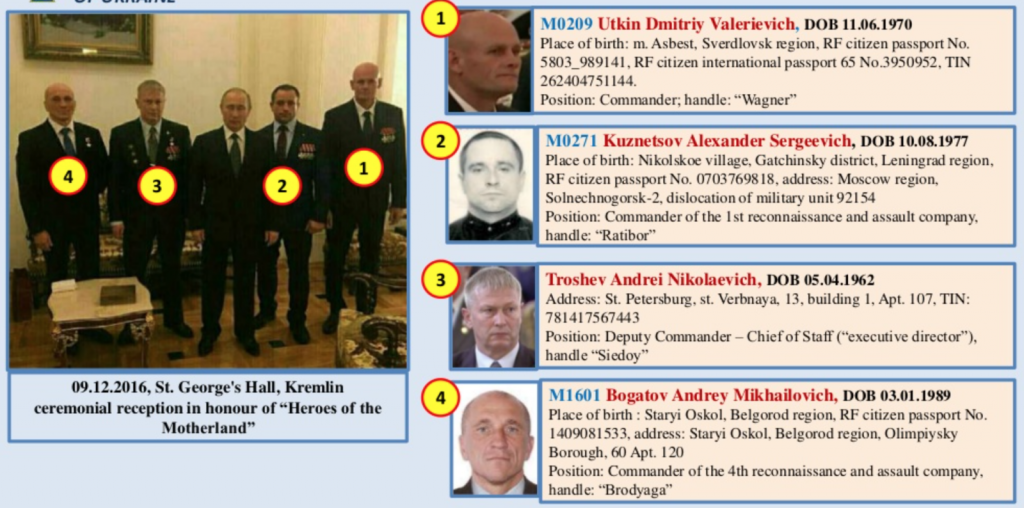
Despite being controlled by one or another law enforcement agency, PMCs carry out tasks in the interests of Russia’s high-rank leaders; their activity is often coordinated. In conducting strategic tasks these units use logistic and other resources of several government departments.
Obviously, Yevgeny Prigogine is a fictitious curator of the Wagner Group.
His biography lacks military experience. However, he has a significant criminal background. On November 29, 1979, Leningrad court gave Prigozhin a suspended sentence for stealing; in 1981 another court sentenced him to twelve years imprisonment on robbery, fraud and ‘involving a minor in criminal activity’ charges. He also involved teenagers in prostitution for which he was also convicted. Out of 12 years Prigogine spent 9 years in the colony. In 1988 he was pardoned and in 1990 he was released from the settlement colony. Thus, Yevgeny Prigogine has an image of an ideal intermediary to implement schemes with high criminal liability risks. Almost the whole system of hybrid operations (PMCs, information operations groups, so-called Internet troll agencies) links to Prigogine that endangers his life. This excludes possible friendly relations between him and Vladimir Putin.
In fact, the Wagner Group is directed by several law enforcement agencies providing logistic, financial, intelligence, material and technical support. Prigozhin’s role in PMC Wagner is likely to come down to mediating financial transactions between budget funds and PMCs, as well as receiving and granting the raw materials from the operations countries to the Russian leaders.
The transfer of PMC Wagner mercenaries from Russia to Syria and Libya is carried out by airplanes of the Russian Ministry of Defense.
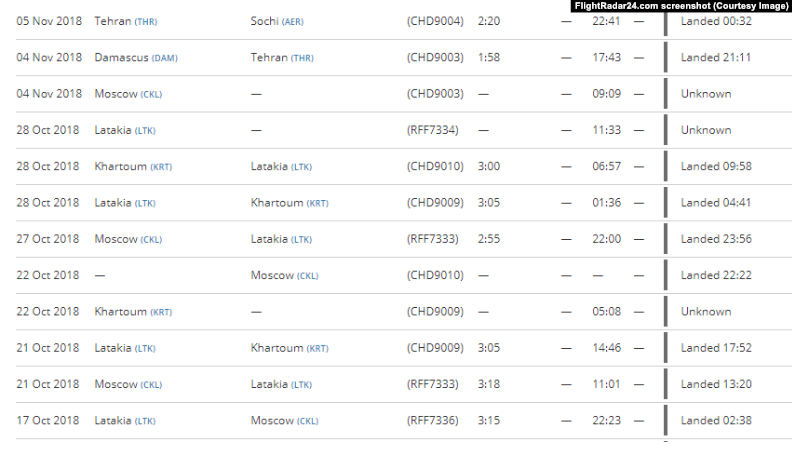
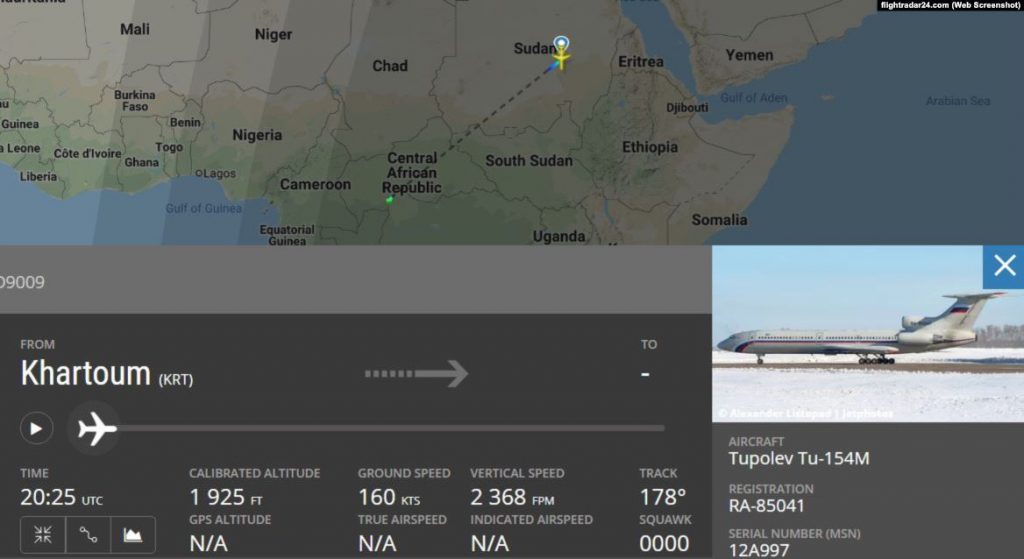
In March, 2019 Russian Air Force An-124 Condor RA82035 heavy transport plane (enrolled in the Allied Forces of 1994) is back home after a brief trip to Venezuela, where it helped reportedly deliver almost 100 military personnel and tons of unspecified cargo as part of the Kremlin’s ongoing support for embattled Venezuelan President Nicolas Maduro.
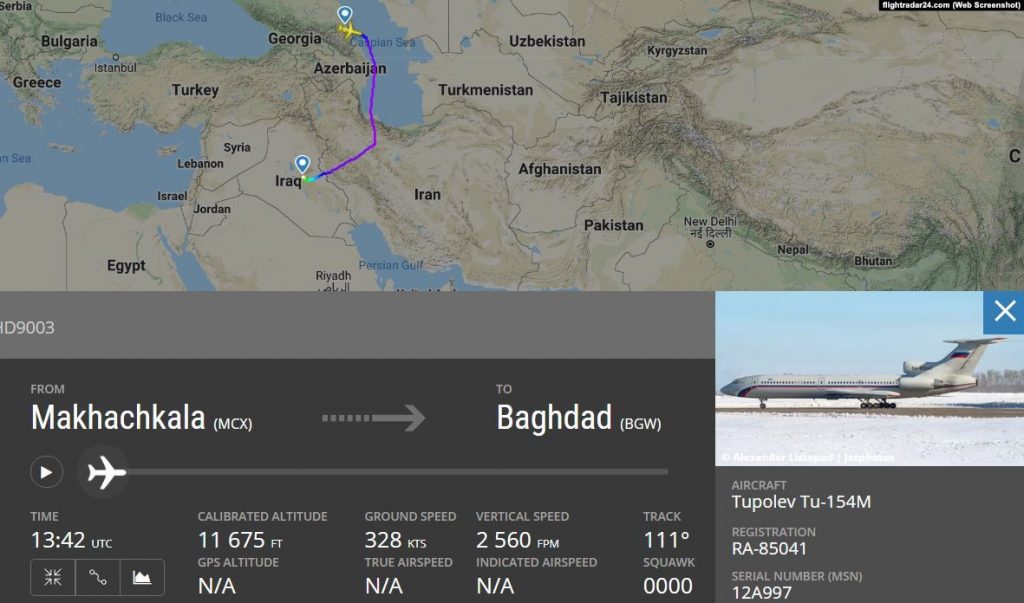
The An-124, along with a Russian Air Force Il-62M RA86496 passenger transport (part of 223 aviation unit transporting on instructions from the President, Government and Ministry of Defense of the Russian Federation), arrived at Simón Bolívar International Airport in Venezuela’s capital Caracason Mar. 23, 2019. Both aircraft originated in Russia, but the Il-62M stopped in the Syrian capital Damascus before heading off to South America, while the An-124 flew through the Russian military’s Khmeimim air base outpost, also in Syria.
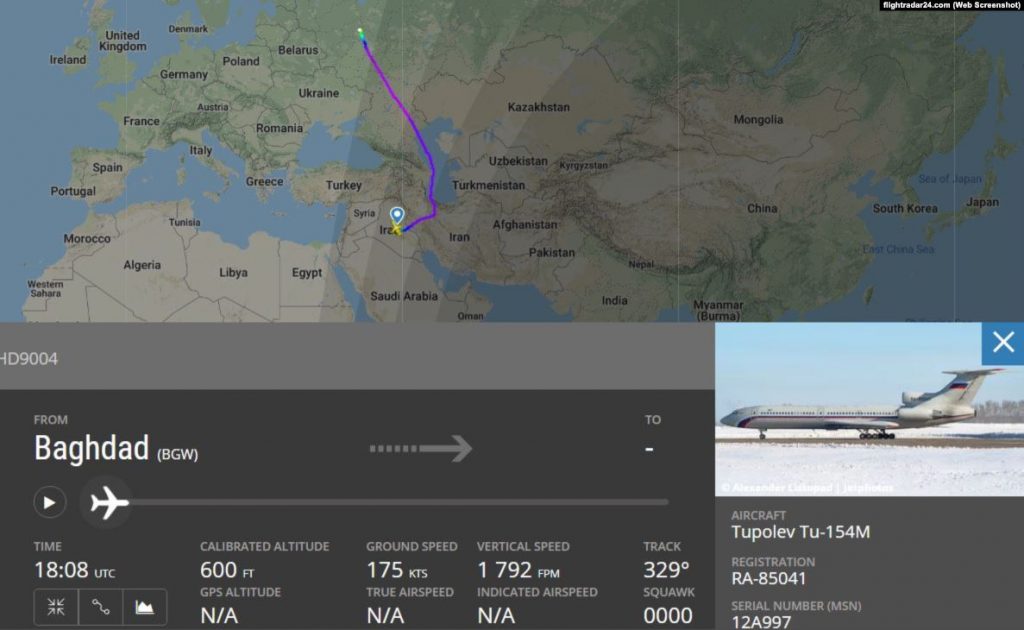
Flights to Sudan in the interests of PMC Wagner were carried out by two Tu-154M aircrafts with tail numbers RA-85041 and RA-85155 enrolled in the Russian Space Forces.
Delivery of PMC personnel and their heavy equipment to Syria by sea is carried out by warships.
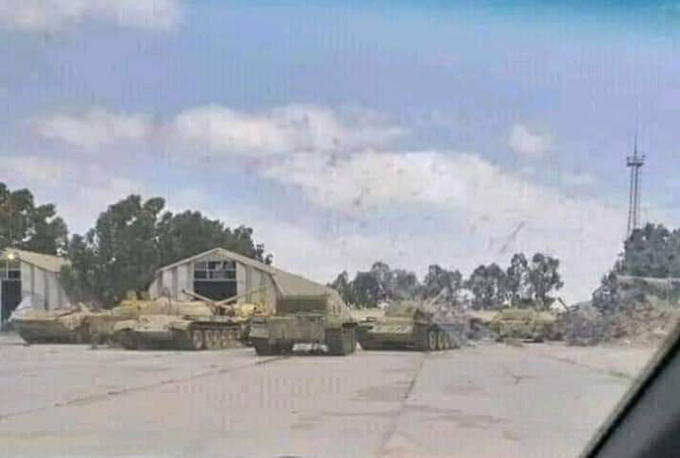
Military training of PMCs is conducted at the training ground of the Ministry of Defense. For example, the Wagner Group mercenaries are training at a training ground located opposite the unit of the 10th Main Intelligence Directorate brigade (military unit 51532) in 30 kilometers from Krasnodar to the south, M-4 ‘Don’ highway is guarded by military intelligence personnel.
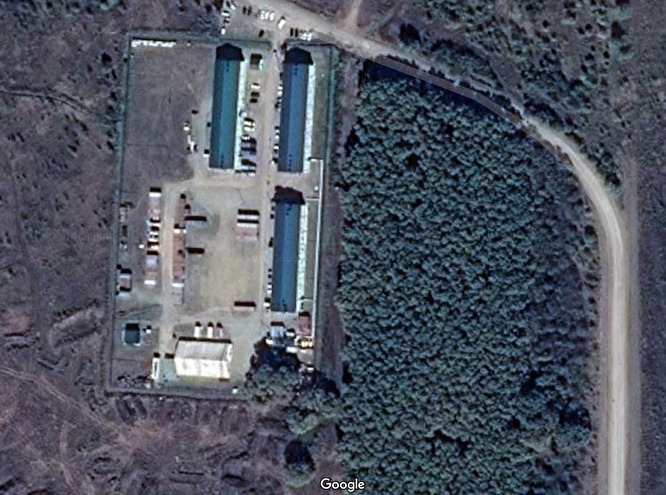
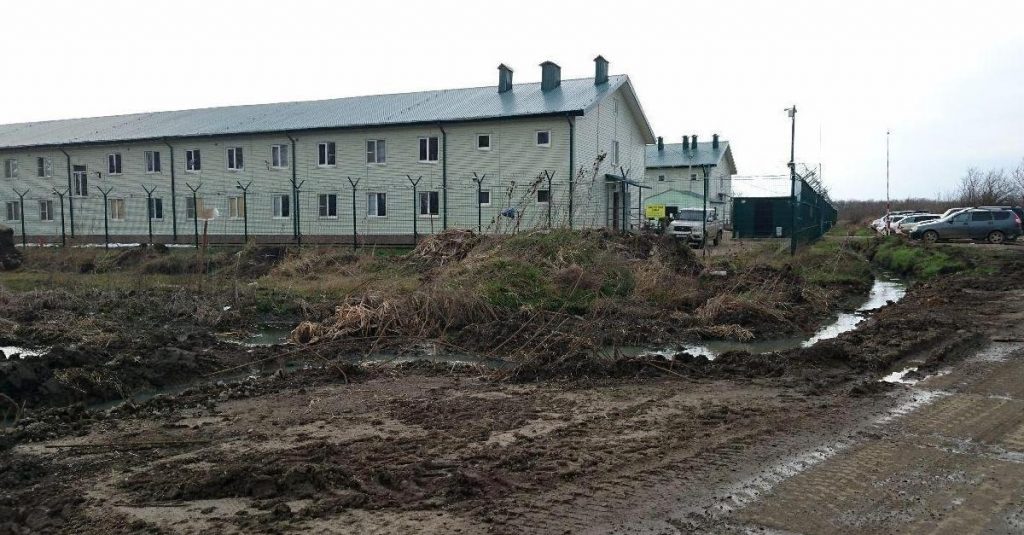
Released satellite photos by AFRICACOM purporting to show the jets at al-Jufra airbase.
With no doubts, the modern combat aircraft have been transported to Libya from the Russian Space Forces bases and transferred to the PMC operational management. This step could not be taken without the consent of the Minister of Defense and the President of Russia.
According to the Bellingcat, the Wagner Group mercenaries got Russian passports with serial numbers in the only Moscow passport office 770-001 that had earlier issued fake documents to the Main Intelligence Directorate officers Mishkin (Petrov) and Chepiga (Boshirov).

In September 2018, the Bellingcat team reported that the mentioned passport office, known as the FMS 770-001 department, was regularly used to issue domestic passports to the Main Intelligence Directorate undercover officers, for example, suspected of Salisbury poisoners, as well as two Main Intelligence Directorate unrelated undercover officers accused of preparing a coup in Montenegro in 2016. Moreover, Bellingcat found out that the same passport office had issued passports to the Russian civilian citizens linked to the Russian Ministry of Defense on work or family basis. This fact proves that the Russian leaders are actively supporting its PMCs’ foreign illegal operations.
Tasks of Russian PMCs
Performing foreign operations Russian PMCs provide the Kremlin with access to the mineral deposits the development of which is restricted internationally or by an embargo. For example, in the CAR, PMC Wagner maintained activity of the gold mines in Ndassim and diamond mines in the area of Bria.
In 2018 hundreds of the Wagner Group mercenaries arrived in the Central African Republic to guard diamond mines, train the army and provide bodyguards for an embattled president, Faustin-ArchangeTouadéra.
In Guinea, where Rusal, a Russian aluminum giant, has a big stake, Wagner has cosied up to President Alpha Condé, who has bloodily faced down protests against a new constitution that lets him have a third term in office.
On June 26, 2020, the Wagner Group seized the El Sharara oil field in Libya. The action targets blocking Libyan oil production in the interests of the Russian economy (stimulating the world oil prices growth).
More than a hundred mercenaries of PMC Wagner were eliminated in Syria in their attempt to seize the Koneko field and the oil refinery.
Therefore, PMCs’ activity provides underground channels for funds and raw materials flows to Russia (the Russian leaders, including PMCs’ curators). The access to these channels is competitive. This is an important element of Russia’s shady economy controlled at the highest state level, and serves for the country’s highest-level officials as gold-mine as well.
For example, Wagner and Patriot Groups struggled for getting a contract on protection of gold miners in the Central African Republic. This fact proves that PMCs provides their curators from the law enforcement agencies financially.
Upon fighting in Syria stopped being intensive the Ministry of Defense saw financial flows decreased. The conflict between Shoygu and Prigozhin escalated after seizing Palmyra, Syria. Prigozhin was the first one who informed Putin about the operation aftermath and Sergei Shoygu, in turn, cut financial flows to the formal owner of the Wagner Group Prigozhin and Dmitry Rogozin.
Strategically, Russian PMCs are tasked to protect friendly countries. The Wagner Group provided physical security to high-rank officials of Syria, Sudan, and Venezuela.
PMC Wagner war crimes
The activity outside the legal environment and Russian leaders’ denial of the Russian PMCs’ involvement in foreign operations provoke them to commit war crimes. The personnel of PMCs are due in no small part to the crime rate. According to open sources data, about 40% of the personnel were convicted of serious crimes such as murders and robberies. Before being enrolled in PMCs many of them were alcohol addicted.
For example, Russian Wagner private military contractor was accused of war crimes in Syria.
In 2028 several reports published footage of the murder of Syrian national Hammadi Taha al-But by Wagner mercenaries.
Hammadi was captured in June 2017 during a battle with the Daesh/ISIS terrorist group for the al-Shaer gas field in central Syria. He was tortured and decapitated and his body burnt with his head hung on the fence of a nearby gas processing plant.
Russian private military contractor Wagner was accused by Libya’s interior minister Fathi Bashagha of carrying out a chemical attack in Libya. Wagner mercenaries used a nerve agent against forces of Libya’s Government of National Accord (GNA) in the Salah al-Din area in southern Tripoli.
While Bashagha did not disclose further information on the exact kind of nerve gas allegedly used against GNA fighters, an Egyptian-Canadian photojournalist in Libya has given his witness account, after witnessing “dodgy” symptoms at a Libyan hospital.
Amru Salahuddien wrote on Twitter that he witnessed on Wednesday several GNA fighters falling to the ground, “slightly shaking and unable to breathe normally”.
It was described as “off-white” smoke, causing convulsions and respiratory irritations, to the fighters immediately near it. Chlorine is yellowish, doesn’t cause convulsions, and would reach even further fighter. Most likely it was incindiary white phosphorous.
In June 2020, Russian mercenaries from PMC Wagner who are fighting in Libya on the side of Field Marshal Khalifa Haftar desecrated Niffati Mosque in Ein Zara in south of Tripoli.
The mosque was vandalized by Russian mercenaries apparently after the militias affiliated with eastern Libyan military commander Khalifa Haftar targeted a mosque in south of Tripoli.
While departing the outskirts of Tripoli, Russian mercenaries leave home-made explosive devices disguised as children’s toys. A spokesman for the government-led counteroffensive, the Burkan Al-Ghadab (Volcano of Rage) operation, said of the booby trap: ‘Our heroic forces inside one of the homes of civilians in the liberated capital areas found a child doll planted with explosive devices left by Haftar’s terrorist militias before their escape’. Independent arms researcher Caliber Obscura said the deadly device was typical of the methods deployed by the shadowy Russian private military company Wagner.



